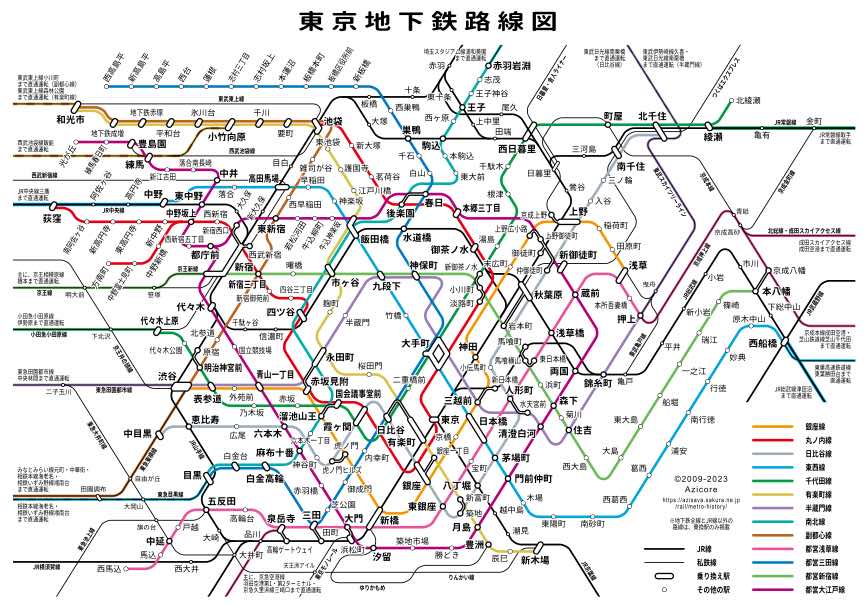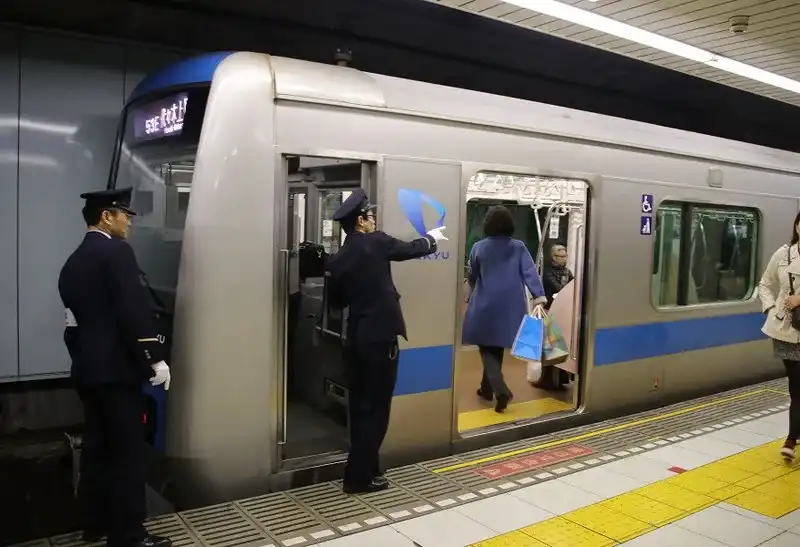Punctuality is not the only thing that makes Japanese trains great
As a daily commuter on Japanese trains, I never thought much about it.
It was just a normal part of my routine, like grabbing coffee in the morning.
However, I’ve recently learned that visitors from abroad are often genuinely amazed by the Japanese railway system.
What exactly surprises them so much?
Let’s dive into reviews from tourists who have actually experienced it firsthand.
Table of Contents
Tourist Reviews: Accuracy and Serenity
After some research, it’s clear that two aspects consistently stand out in foreign tourists’ reviews: the punctuality and the quietness of Japanese trains. Let’s take a look at some excerpts:
“Japanese trains are unbelievably on time! You can actually rely on the timetable, which is just mind-blowing coming from a country where public transport delays are the norm.”
— Travel Blog “Wanderlust Adventures” —
URL: wanderlustadventures.com/japan-trains-amazing
“I witnessed a train being 5 minutes late and the conductor apologized profusely multiple times!
In my country, a one-hour delay wouldn’t even raise an eyebrow.
The Japanese sense of time is on another level.”
— Scott Neuman—
URL: https://www.npr.org/sections/thetwo-way/2018/05/17/611860169/japanese-rail-operator-says-sorry-for-inexcusable-departure-25-seconds-off-sched
“Even with tight transfer times, you can confidently switch trains in Japan.
The precise schedule eliminates unnecessary waiting — a real lifesaver for travelers.”
— Travel forum “International Explorers” —
URL: internationalexplorers.com/forums/topic/japanese-train-efficiency
“The tranquility inside Japanese trains is remarkable. Everyone is quiet, making it perfect for relaxing or catching up on reading. Such a peaceful commute!”
— BJT —
URL: https://en.bjt.jp/the-silent-journey-understanding-the-importance-of-being-quiet-on-japanese-trains/
These are just a few examples, but countless more echo the same sentiments about accuracy and tranquility.

Why So Precise and Peaceful? The Pillars Behind Japanese Railways
So, what makes Japanese trains so exceptional? It’s not just one factor, but a combination of elements deeply ingrained in Japanese culture and technology.
Technological Prowess
Japan boasts advanced railway technology, including sophisticated signaling systems and meticulously maintained infrastructure.
This allows for highly precise train operation.
Unwavering Punctuality (Kichomen-sa)
Punctuality is a virtue deeply valued in Japanese society.
This “kichimen-sa” permeates every aspect of train operation, from planning to execution.
Diligence and Dedication (Kinben-sa)
Railway staff are known for their diligence and unwavering dedication to their jobs.
They work tirelessly to ensure smooth and timely operations, often going above and beyond.
High Moral Standards and Public Etiquette (Doutoku-shin & Manner)
The quietness inside trains reflects Japanese public etiquette and a strong sense of consideration for others.
Passengers generally refrain from loud conversations or phone calls, creating a serene environment for everyone.
The Backbone of Business and Society
In Japan, train punctuality isn’t just a convenience; it’s a fundamental expectation.
Business schedules are meticulously planned around train timetables.
Railway companies bear a significant responsibility to maintain this accuracy, as the nation’s economic activity relies on it.
Unlike in many other countries where cars are the primary mode of commuting, in Japan, especially in metropolitan areas like Tokyo, trains are the lifeline for business professionals.
While cars can get stuck in unpredictable traffic jams, trains offer a reliable and predictable way to reach meetings and appointments on time. This is why you’ll see countless “salarymen” in suits heading to and from stations every rush hour.
Extensive and efficient network of Japanese trains
Ever wondered how you can get almost anywhere by train in a sprawling metropolis like Tokyo? The answer lies in its incredibly extensive and efficient railway network.

Tokyo alone is served by numerous railway companies, including
Private Railway Companies
Companies like Tobu, Seibu, Keio, Odakyu, Tokyu, Keikyu, and Keisei operate vast networks extending into the suburbs.
Japan Railways (JR)
JR East (and other JR companies in different regions) operates a massive nationwide network, including the Yamanote Line, Chuo Line, and many others within Tokyo.
Tokyo Metro and Toei Subway
These subway systems crisscross the city center, providing crucial underground transportation.
Combined, these companies operate hundreds of lines, creating a dense web that makes almost any destination within and around Tokyo easily accessible by train.

The Miracle of Rush Hour on Japanese Trains: High Frequency, High Safety
Speaking of Tokyo, have you ever witnessed rush hour?
It’s an experience in itself!
During peak hours, trains on major lines like the Yamanote Line run as frequently as every 2–3 minutes.
Imagine that density!
Yet, despite this incredible frequency and packed trains, accidents are remarkably rare.
This speaks volumes about the safety measures and operational expertise of Japanese railway companies.
It’s a true testament to their commitment to both efficiency and passenger safety.
How About Public Transport in Your City?
So, the next time you’re planning a trip to Japan, remember to factor in the experience of riding their trains.
It’s more than just transportation; it’s a journey into a culture that values punctuality, serenity, and efficiency.
And now, I’m curious — how is public transportation in your city?
Is it an efficient and pleasant experience, or a source of daily stress?
Let me know in the comments below!






Leave a Reply